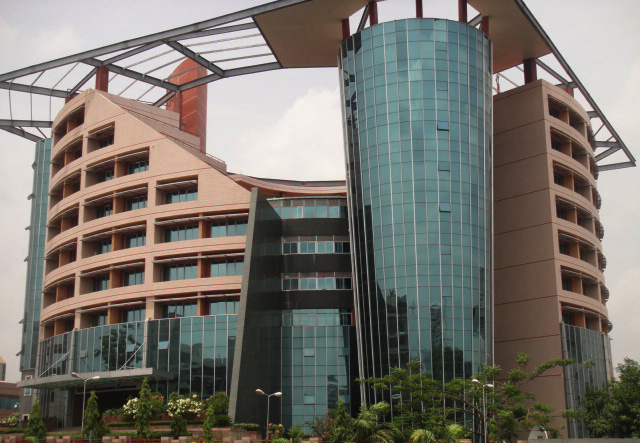By Oluwatobi Opusunju
The Association of Interconnect Exchange Operators of Nigeria (AIEON) has denied allegations of call masking and refilling levied against six of its members by the telecom regulator: the Nigerian Communications Commission (NCC).
AIEON says the NCC erred in its investigation and refusal to give its members opportunity to state their case and warns that the suspension threat on its six members may be part of a grand plan to strangle interconnect clearinghouses out of the market.
“The problems which gave rise to the birth of clearinghouse ab initio, such as inter connect disputes and the resultant high indebtedness, anti-competition, and poor quality of service to subscribers, at a higher cost, will skyrocket if we are driven to extinction,” the association warns in a reaction-letter sighted by IT Edge News.
The NCC in an earlier letter signed jointly by its Head of Legal and Regulatory Service, and Head of Compliance Monitoring and Enforcement, Yetunde Akinloye and Efosa Idehen had accused the six telcos of infractions that bordered on illegalities. All six are to have their operational licenses suspended as part of the penalty process.
The six telcos are: Niconnx Communications Ltd, Breeze Micro Ltd, Interconnect Clearing House Nigeria Ltd. Medallion Communications Ltd, Solid Interconnectivity and Exchange Telecommunications Ltd.
But AIEON has denied the allegations in its official reactions signed by its Chairman , Oladele Ayanbadejo and Vice Chairman, Ikechukwu Nnamani. The association expressed their displeasure with the commission’s intention to suspend their licenses, stating that it was unfair to isolate the Interconnect Exchange Operators (Clearinghouses) as the culprits behind what is obviously systemic contagion in the industry as almost 95% of voice traffic is routed peer-to-peer amongst the operators while less than 5% of voice calls are transited via the clearinghouse.
“The [NCC] letter is thus a startling departure from the commission’s good practice of engagement and fair hearing. The association is thus compelled to write on behalf of its members, to express our collective displeasure with the commission’s intention to suspend our license, without furnishing us with the precise details of our alleged offence and giving us an opportunity to explain and defend ourselves.”
AIEON further stated that allegations were unfounded because they do not have subscribers, neither do they originate calls as all calls terminating via their platforms originate from a network and could be traced if given the chance.
READ: http://itedgenews.africa/2018/01/23/security-concerns-ncc-applies-hammer-six-telcos-call-masking/
“The timing and content of the letter is particularly shocking, as the Commission by way of a letter dated 20th December 2017, invited us to attend a meeting scheduled for 10th January 2018, to clarify issues relating to the Commission’s investigation on Call masking/Refiling in the industry. All our member companies looked forward to the meeting, and purchased flight tickets, in readiness to give our full cooperation to the commission’s investigation.
“We received a notification of cancellation, barely 48 hours before the meeting was due to hold. Strangely and quite frankly very unsettling, we received another letter, notifying us of the commission’s intention to suspend our Interconnect Exchange Licenses on the basis that the commission has established what at best is a prima facie case of alleged involvement in call masking and refiling.
“The commission is well known for engaging its licensees and constantly provides forums and platforms for interface. The letter is thus a startling departure from the commission’s good practice of engagement and fair hearing. The association is thus compelled to write on behalf of its members, to express our collective displeasure with the commission’s intention to suspend our license, without furnishing us with the precise details of our alleged offence and giving us an opportunity to explain and defend ourselves,” the letter reads.
Further still, AIEON said it had written admissions from certain operators that some of the voice calls they transited via the clearinghouses were indeed masked calls and there had been countless instances when the mobile network operators (MNOs) restricted calls routed via the clearinghouse from terminating on their network. It said call masking remained very rampant whilst the restrictions were in place.
AIEON expressed fear that the looming suspension of the interconnect exchange licence is yet another pointer that some industry players seemingly want the telecommunications industry in Nigeria to shrink, by reducing the number of active service providers as smaller operators have been systematically wiped out by the big players, and the interconnect exchange operators appear to be next in line.
“The problems which gave rise to the birth of clearinghouse ab initio, such as interconnect disputes and the resultant high indebtedness, anti-competition, and poor quality of service to subscribers, at a higher cost, will skyrocket if we are driven to extinction.
“These problems have remained because the MNOs are reluctant to embrace the clearinghouse model, and we urge the commission to create an enabling environment for the interconnect exchange operators, to carry out our functions in line with industry best practice.
“We kindly ask the commission to jettison the intention to suspend our operating license, as we are not the root cause of the problem, and have actively fought to eradicate call masking from the industry,” the Association stated.





























